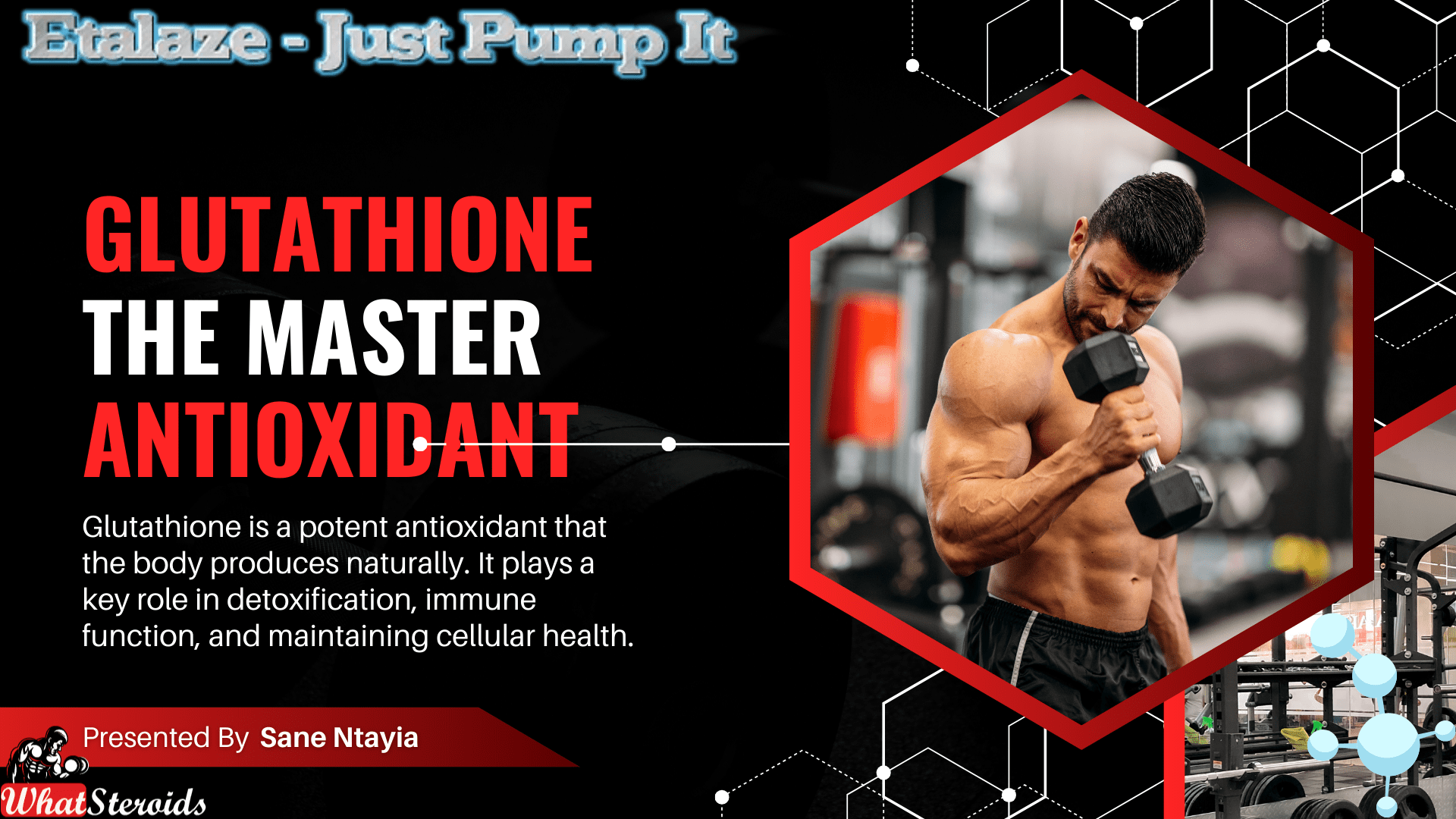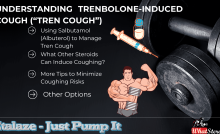Glutathione – The Most Underrated Antioxidant


Glutathione, often referred to as the "Master Antioxidant," plays a crucial role in neutralizing free radicals and maintaining cellular health, making it an excellent supplement for bodybuilders across all age groups. Its ability to support liver detoxification, reduce inflammation, and enhance immune function is particularly beneficial for those undergoing intense training or using performance-enhancing drugs (PEDs).
Must Read: Human Chorionic Gonadotropin Hormone
As mentioned, it is a potent antioxidant that the body produces naturally. It plays a key role in detoxification, immune function, and maintaining cellular health.
How Can It Help You?
Glutathione neutralizes harmful free radicals, reducing oxidative stress and shielding cells from damage. This is especially critical for individuals using anabolic steroids or other PEDs, as these substances can increase oxidative stress, burden the liver, and hinder recovery.
Key Benefits of Glutathione Include
- Liver Detoxification: Aids the liver in processing toxins, particularly those introduced by PED use.
- Reduced Inflammation: Helps mitigate systemic inflammation, enhancing recovery and lowering injury risk.
- Enhanced Immunity: Bolsters the immune system, keeping you healthier during intense training cycles.
Additionally, it supports skin health, reduces signs of fatigue, and promotes a general sense of well-being, making it invaluable for athletes focused on both performance and longevity.
How Is It Used?
Glutathione can be taken orally (in liposomal or reduced forms) or via injections for better bioavailability. A typical dose is 500–1000 mg daily if taken orally, or the same amount once a week if injected.
Are There Side Effects?
The hormone is usually well-tolerated. Rare side effects may include mild gastrointestinal discomfort or skin rashes, but these are uncommon. Injected glutathione is considered safe when properly administered.
Alternatives to Glutathione
There are several alternatives to glutathione that can help support your body's antioxidant defenses and overall health:
Vitamin C: This powerful antioxidant helps neutralize free radicals and can also help regenerate glutathione in the body.
Vitamin E: Another potent antioxidant that protects cell membranes from oxidative damage.
N-acetylcysteine (NAC): A precursor to glutathione, NAC can help boost the levels in the body.
Selenium: This trace mineral works synergistically with glutathione to enhance its antioxidant effects.
Milk Thistle: Known for its liver-protective properties, milk thistle can help support glutathione production.
Alpha-lipoic acid (ALA): This antioxidant helps regenerate other antioxidants, including glutathione, and can improve overall antioxidant capacity.
Curcumin: Found in turmeric, curcumin has strong anti-inflammatory and antioxidant properties.
Green Tea Extract: Rich in catechins, green tea extract provides powerful antioxidant benefits.
These alternatives can help maintain your body's antioxidant defenses and support overall health.
Legality of Glutathione Across Different Countries and Territories
The legality of glutathione supplements varies across different countries and territories. Here's a general overview:
United States
Glutathione supplements are widely available and legal in the U.S. They are regulated by the FDA under the Dietary Supplement Health and Education Act (DSHEA) of 19942. The FDA requires that supplements be labeled accurately and that they are safe for consumption.
Canada
In Canada, glutathione supplements are also legal and regulated by Health Canada. They must meet the Natural Health Products Regulations, ensuring safety, efficacy, and quality.
European Union
Glutathione supplements are legal in the EU and are regulated by the European Food Safety Authority (EFSA). They must comply with the EU's Novel Food Regulation if they are marketed as a new food product.
Australia
In Australia, glutathione supplements are legal and regulated by the Therapeutic Goods Administration (TGA). They must be listed on the Australian Register of Therapeutic Goods (ARTG) to be legally sold.
Japan
Its supplements are legal in Japan and are regulated by the Ministry of Health, Labour, and Welfare (MHLW). They must be approved as dietary supplements.
India
In India, glutathione supplements are legal and regulated by the Food Safety and Standards Authority of India (FSSAI). They must comply with the Food Safety and Standards (Food Products Standards and Food Additives) Regulations, 2011.
Other Countries
The legality of glutathione supplements can vary in other countries, and it's essential to check local regulations before purchasing or using them. Some countries may have stricter regulations or require specific approvals for dietary supplements.
Don't Miss: How to Manage Joint Stiffness While on AAS
It's always a good idea to consult with a healthcare professional or regulatory authority in your specific country to ensure compliance with local laws and regulations on the use of Glutathione.
Overall
By mitigating oxidative stress, glutathione helps in faster recovery, reducing injury risks, and promoting overall well-being. Additionally, its role in boosting skin health and combating fatigue adds to its appeal, contributing to both performance and longevity. However, it is essential for users to consult with healthcare professionals before starting any supplement regimen to ensure safety and efficacy, as individual needs and responses can vary. Glutathione's multifaceted benefits make it a valuable tool in the arsenal of bodybuilders aiming to optimize their health and performance.
Recent Posts
Decoding IGF-1 LR3: A Guide to its Benefits
IGF-1 LR3 (Insulin-like Growth Factor-1 Long Arg3) is a synthetic variant of IGF-1, a hormone…
AOD-9604: The Fat-Burning Peptide Explained
AOD-9604, along with the similar HGH Frag 176-191, is a peptide derived from Growth Hormone…
Understanding Trenbolone-Induced Cough (“Tren Cough”)
Trenbolone, a potent anabolic steroid, can sometimes cause “tren cough”—a sudden and intense coughing episode…
Creatine vs Myostatin: An Expert’s Analysis
Myostatin, a protein encoded by the MSTN gene, acts as a regulator of muscle growth.…
Raloxifene (Evista) 101: A Non-Surgical Solution for Gyno
Raloxifene, a selective estrogen receptor modulator (SERM), is one of the most valuable yet less…
Mastering Bodybuilding in 2025: Top Fitness Tips for Success
Bodybuilding is more than just a sport; it's a lifestyle that requires dedication, discipline, and…


